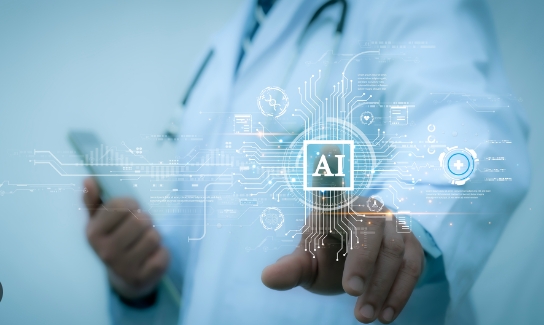Revolutionizing Healthcare: How Artificial Intelligence is Saving Lives
Artificial Intelligence (AI) is transforming the healthcare industry by improving patient care, increasing efficiency, and saving lives.
Early Detection and Diagnosis
AI algorithms can analyze vast amounts of medical data, from patient records to X-rays and genetic information, to detect diseases at an early stage. This enables healthcare providers to diagnose and treat conditions faster, reducing the risk of complications and improving outcomes.
Personalized Treatment Plans
AI can generate personalized treatment plans based on a patient’s unique characteristics, including genetic makeup, lifestyle factors, and medical history. This approach ensures that patients receive the most effective and tailored care possible, leading to better overall health outcomes.
Remote Monitoring and Assistance
AI-powered devices and apps can monitor patients remotely, collecting real-time data on vital signs, medication adherence, and symptoms. This technology enables healthcare providers to intervene quickly if a patient’s condition deteriorates, reducing the need for emergency room visits and hospitalizations.
Telemedicine and Virtual Consultations
AI is revolutionizing the way patients access healthcare by enabling virtual consultations and remote monitoring. This technology increases access to care for patients in rural or underserved areas and reduces the burden on healthcare facilities, saving time and resources.
Predictive Analytics
AI algorithms can analyze patient data to predict and prevent adverse events, such as hospital readmissions, infections, and medication errors. This proactive approach improves patient safety and reduces healthcare costs by preventing unnecessary interventions.
Enhanced Imaging and Diagnostics
AI-powered imaging algorithms can analyze medical images, such as X-rays, MRIs, and CT scans, to detect abnormalities and assist radiologists in making accurate diagnoses. This technology reduces human errors and improves the efficiency of diagnostic procedures.
In conclusion, Artificial Intelligence is revolutionizing healthcare by improving early detection and diagnosis, personalizing treatment plans, enabling remote monitoring and assistance, facilitating telemedicine, predicting adverse events, and enhancing imaging and diagnostics. These advancements are saving lives, improving patient outcomes, and transforming the way healthcare is delivered.

